Helping people displaced by conflict in Iraq survive the winter
In pictures: How humanitarian aid from the UK is helping Iraqi and Syrian people cope with freezing conditions in northern Iraq.
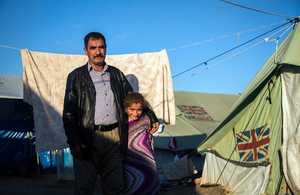
Zaido, 50, and his daughter, pictured outside their family's tents in an informal camp for Internally Displaced Persons in northern Iraq. Picture: Andrew McConnell/Panos for DFID
The Department for International Development (DFID) is leading the UK’s humanitarian response to the crisis created by ISIL in Iraq. There are over 5 million people in need of humanitarian assistance in Iraq, and over 2 million people were displaced by ISIL in 2014.
Video: From Kobani to Kurdistan - Warda’s story
From Kobani to Kurdistan: Warda’s story
Through the UN’s refugee agency, UNHCR, the International Organisation for Migration and other partners, we’re getting life-saving aid to people across Iraq who have fled ISIL terrorists.
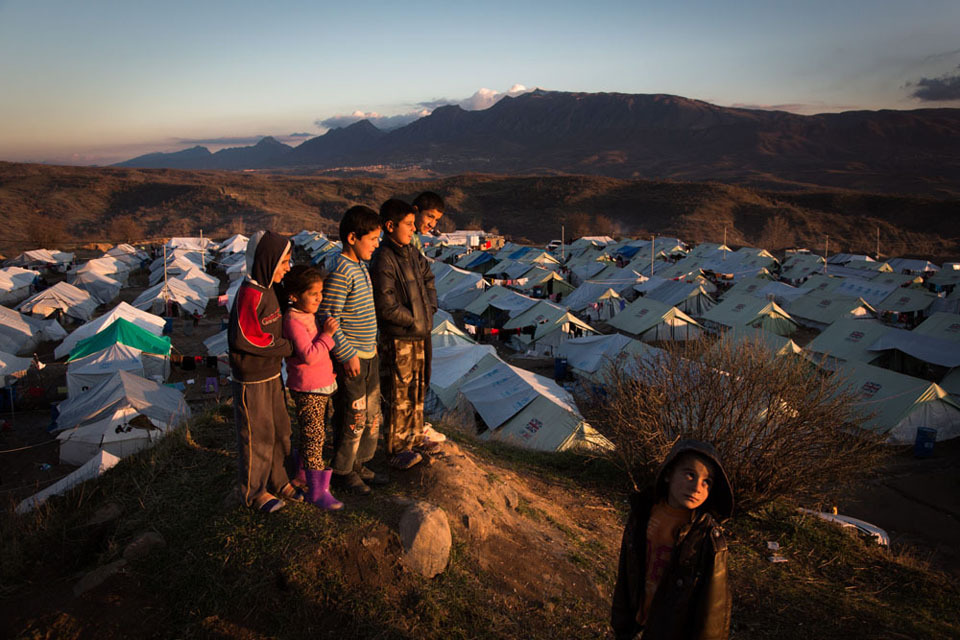
Children look out over an informal camp for families displaced from their homes by ISIL in northern Iraq. The camp, which was recently home to around 1000 families, has been supplied with tents by UK aid. Picture: Andrew McConnell/Panos for DFID
In the summer of 2014 we responded to the rapidly growing number of Iraqis fleeing their homes by allocating £23 million in emergency humanitarian assistance. These funds are continuing to provide food, shelter, water, sanitation and medical care, to thousands of vulnerable displaced families across Iraq.
Video: Displaced in northern Iraq - Samir’s story
Displaced in northern Iraq: Samir’s story
In November 2014, as winter approached and temperatures dropped below zero, we committed an extra £16.5 million of assistance to provide essential aid to tens of thousands of families. More than 1.25 million people were identified as being in need of support to prepare for the winter.
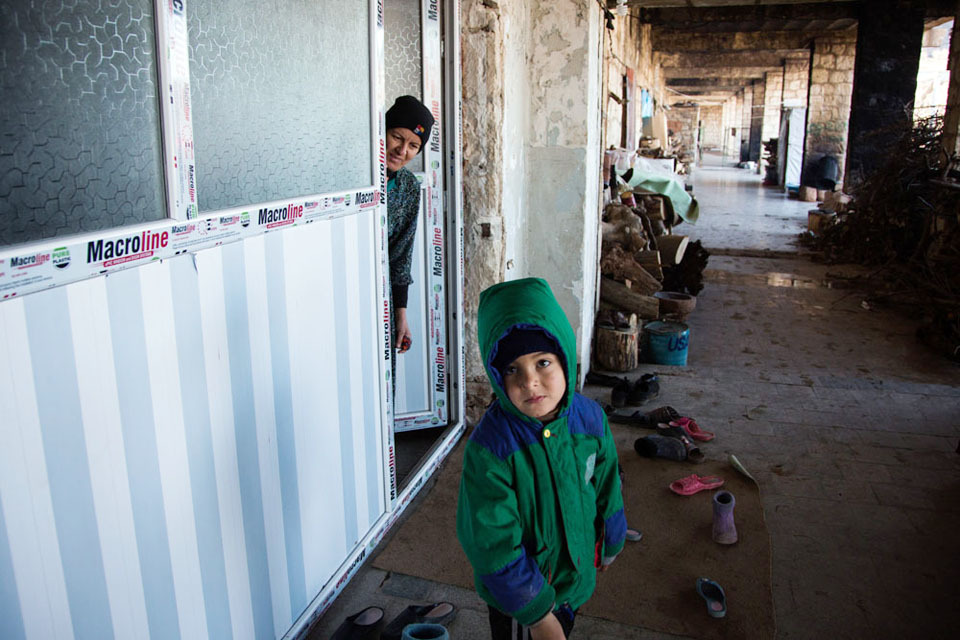
UK aid is helping improve unfinished buildings in northern Iraq, which are being used by thousands of displaced Iraqi families as emergency accommodation. Picture: Andrew McConnell/Panos for DFID
Thousands of displaced Iraqi families have moved into camps and unfinished buildings in towns and cities across northern Iraq. UK support is helping aid agency partners such as the Norwegian Refugee Council to make basic improvements to some of these buildings, such as installing doors, windows and basic sanitation, to improve conditions and make them temporarily more inhabitable.
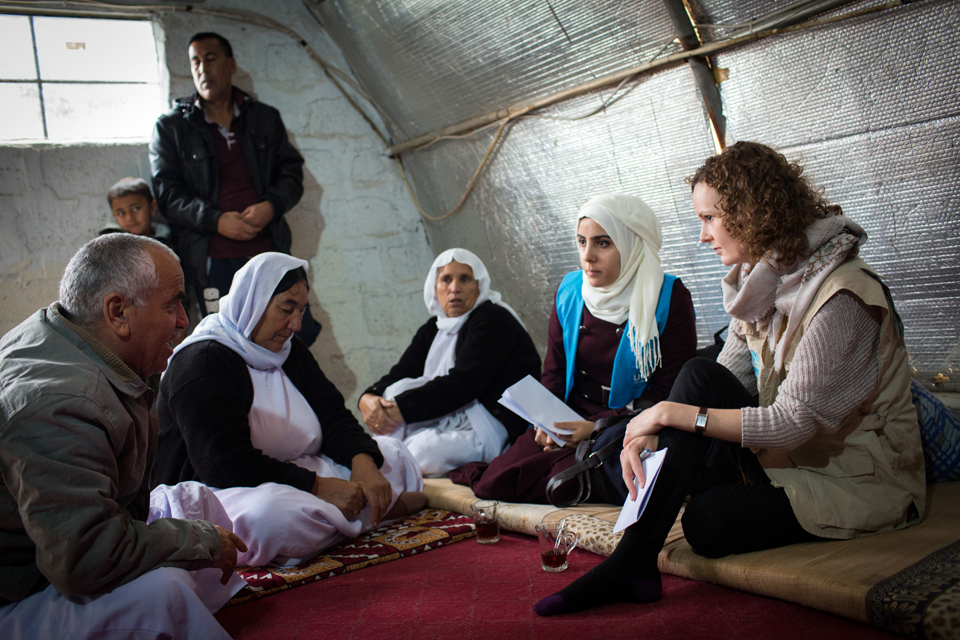
UNHCR protection officer, Gemma Woods, talks to a displaced Iraqi family who are living in a dis-used building on a university campus in northern Iraq. Picture: Andrew McConnell/Panos for DFID
UNHCR Protection Officer, Gemma Woods, is one of the humanitarian workers on the ground, assessing the needs displaced families in the areas around Erbil in northern Iraq. She ensures they are aware of their rights and helps them to access the support that is available. One programme awards small unconditional cash assistance grants, which means families can make their own decisions about what they need to spend money on.
I see that the cash assistance programme gives internally displaced persons (IDPs) a certain amount of breathing space in the initial months of their displacement, at a time when vulnerabilities are most pronounced,” says Gemma.
We’ve spoken with many IDPs who were able to avoid eviction from the basic shelter they had been able to find because of cash assistance, or who were able to pay for medicines for chronic medical conditions which they were unable to cope without.
Now that winter is here, many IDPs have been able to prepare themselves with the cash assistance by buying winter clothes, making improvements to shelters and purchasing kerosene.
The fact that they are able to choose how to spend the money on what they consider to be their greatest need at that time also affords IDPs a level of dignity which they report is greater than if they receive in-kind assistance (blankets, etc).
However, the greatest wish of the IDP community is to become self-sufficient and to be able to provide for themselves and their families through work.
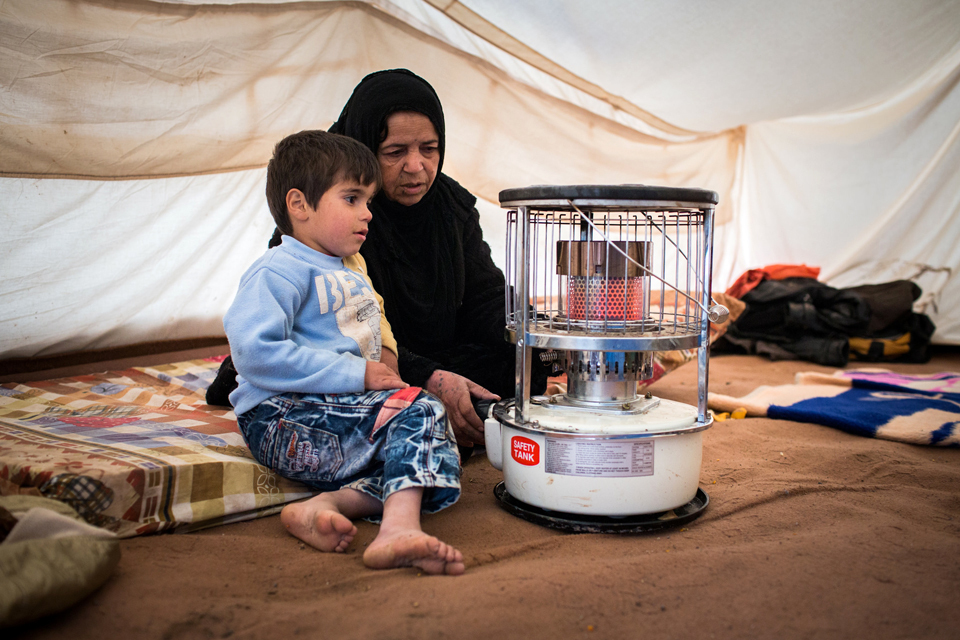
Warda and one of her children keep warm by a stove heater heater in their tent in northern Iraq. Picture: Andrew McConnell/Panos for DFID
UK aid is also supporting Syrian refugees in Iraq. Warda and her family are one of many Syrian families who fled from Kobane in northern Syria in November 2014, after ISIL attacked the city. They’re now in a refugee camp in the Kurdistan region of northern Iraq.
As the cold weather set in, Warda’s family is one of thousands of who’ve also received aid including stoves, heaters, kerosene, and insulation material, to help them through the winter months to come.
As Warda says:
Without the kerosene and other help, I don’t think we could stay here. I think we would die from the cold.
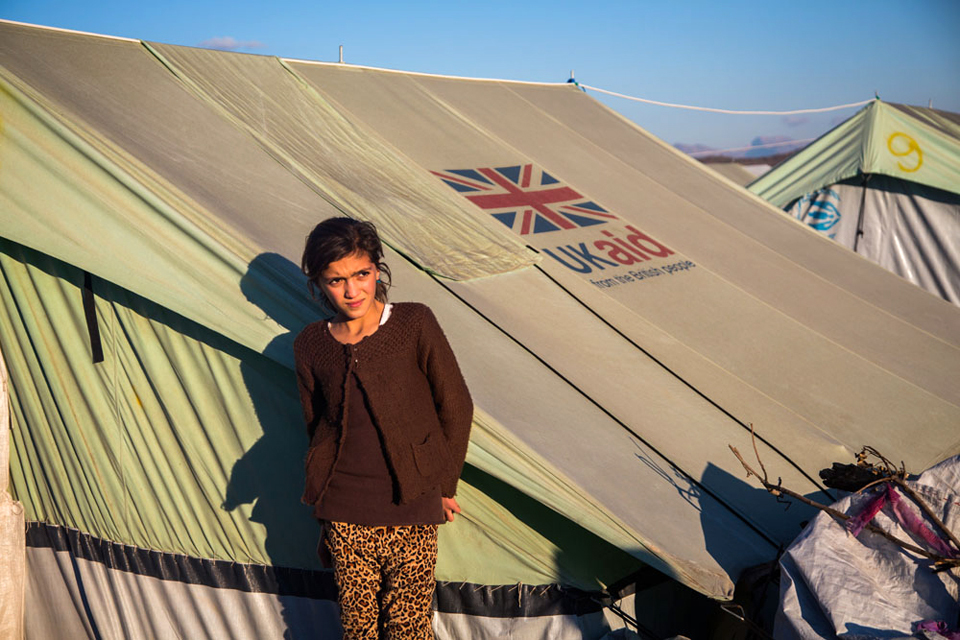
An Iraqi girl stands outside a UK aid tent at a camp for displaced people in nothern Iraq. Picture: Andrew McConnell/Panos for DFID
The UK’s humanitarian support in Iraq this winter is delivering blankets, heating stoves and other essential winter supplies to 14,000 vulnerable displaced families and is helping 16,000 families buy warm clothing. In addition, it is ensuring 4,500 families are sheltered from winter conditions, and providing emergency health support and increased access to safe water for thousands of vulnerable people.
We continue to support international humanitarian efforts to help the millions of people who have fled from ISIL in Iraq.